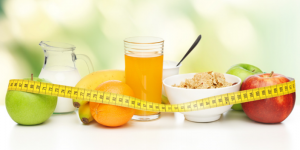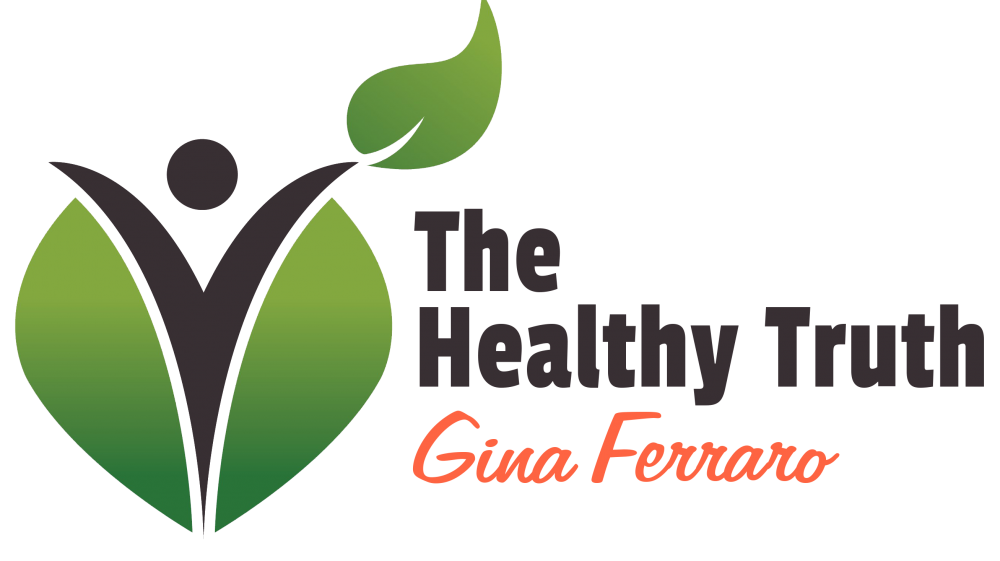by Gina Ferraro | Oct 19, 2014 | Diet, Disease prevention, Health, Wellness
 Marketing is the main way people expose themselves to information, yet what people neglect to understand is that marketers have only ONE objective – to sell you on their point or product. Unfortunately, they often neglect to give you ALL the information and just focus on the points that will convince you to be a consumer of their product.
Marketing is the main way people expose themselves to information, yet what people neglect to understand is that marketers have only ONE objective – to sell you on their point or product. Unfortunately, they often neglect to give you ALL the information and just focus on the points that will convince you to be a consumer of their product.
We live in a scare-mongering time where snippets of information can powerfully cause public behavioural shifts. Obviously, we need to be mindful of the damage that sun-abuse can cause to our bodies, but our sun-smart ways may not be as “smart” as we think!
What is Vitamin D?
Vitamin D is essential for absorbing calcium and phosphorous for strong bones. Furthermore it is now believed that this vitamin D is also needed for:
- Immune system, which helps you to fight infection
- Muscle function
- Cardiovascular function, for a healthy heart and circulation
- Respiratory system –for healthy lungs and airways
- Brain development
- Anti-cancer effects
How To Get Enough Vitamin D
The two main ways to get vitamin D are by exposing your bare skin to sunlight (ultraviolet B rays) and by taking vitamin D supplements (the best form is Vitamin D3). You can’t get the right amount of vitamin D your body needs from food and your body cannot make this vitamin on its own.
Important facts on skin exposure:
- The more skin that is exposed the faster the body absorbs Vitamin D – so larger skin areas such as legs and back are better then smaller areas such as face and arms
- You don’t need to tan or to burn your skin in order to get the vitamin D you need. Exposing your skin for a short time will make all the vitamin D your body can produce in one day. In fact, your body can produce 10,000 to 25,000 IU of vitamin D in just a little under the time it takes for your skin to turn pink.
- Skin type determines how much exposure is necessary. Fair skinned people produce less Melanin so do not need as much time in the sun as darker skinned people who produce more Melanin. Melanin protects against skin damage from too much UVB exposure, so darker skins with more melanin allow less UVB to enter the skin. With less UVB getting through the skin, less vitamin D is produced each minute.
- Your skin produces more vitamin D if you expose it during the middle of the day.
- Solariums (tanning beds) also help the body produce Vitamin D. As with sun exposure it is recommended to get half the amount of exposure that it takes for your skin to turn pink. Using low-pressure beds that have a good amount of UVB light, rather than high-intensity UVA light are also best.
- As we get older our skin has more difficulty producing Vitamin D so supplementation may be a better option
- Supplementation is also recommended for those who have little to no skin exposure to the sun during the week (i.e. indoor jobs or outdoor jobs where you are largely covered up)
What About Sun Damage & Skin Cancer?
Research to date shows that moderate but frequent sun exposure is healthy but overexposure and intense exposure can increase your risk of skin cancer.
Using sunscreen is not as recommended as using shade and clothing to protect your skin, because it hasn’t consistently been shown to prevent all types of skin cancers. But if you do want to use sunscreen, use a sunscreen that blocks both UVA light and UVB light.
If you are still anxious and concerned about skin exposure then your next best options is daily supplementations. Just ensure you are getting a good quality product supplement so do your homework.
The individual recommendations are dependent on numerous factors and it can be complicated. To read more and get a better understanding please click the following link for more in depth information:
http://www.vitamindcouncil.org/about-vitamin-d/how-do-i-get-the-vitamin-d-my-body-needs/#
by Gina Ferraro | Sep 28, 2014 | Diet, Health, Nutrition, Weight loss, Wellness

I wanted to cover a highly misleading concept today about the “importance” of eating breakfast for weight-loss and health. Why do we believe this as “fact”? We have to stop going with the flow of the masses and remember that “a million wrong people are STILL wrong!” Try and do some thinking for yourselves by reading and analyzing credible information. The moment someone reads that something has been scientifically supported through research they blindly follow without understanding anything ABOUT the research. As a scientist myself I personally understand just how much misconception there can be around it all.
As I am an avid supporter of Precision Nutrition I did not want to reword their article and thought I would just cut and paste the basics. The full article can be read at http://www.precisionnutrition.com/skipping-breakfast-and-obesity.
Here is a snippet….
The importance of a “healthy breakfast” is nutritional gospel. Everyone from your grandma, to your personal trainer, to your favorite fitness magazine “knows” a morning meal will help you lose weight and stay lean. But is “what everyone knows” actually true?
Sure, most research on breakfast and body comp shows that breakfast eaters tend to be leaner than non-breakfast-eaters. Unfortunately, a lot of scientific research doesn’t quite “prove” what people think it does.
Yes, science is our main pathway to genuine discovery. But it’s also a human endeavor, and fallible. That’s right, despite their expertise, scientists are people too. As such, they (and their research) can be influenced by many factors, including:
- Worrying about where their next research dollars are coming from.
- Their own deeply rooted assumptions.
- Who’s running their lab or overseeing their work.
- What’s “hot” or “trendy” in their field.
- Sticking it to their arch-rival, Dr. Smug Loudmouth.
- Getting published in The Bigname Journal.
- Their upcoming tenure file review.
Yep, even though we like to think of the scientific process as distant from the petty inter-social nonsense of daily life, it’s not. In fact, it can sometimes resemble a soap opera. That’s why, when it comes to interpreting the results of their own studies, or other peoples, scientists might mess up.
Their needs and their beliefs can distort the way they see the evidence, and what they make of it. This can lead to biased reporting and faulty recommendations. An even bigger problem? This can lead to wide-spread mistaken beliefs among non-scientist people. But is this a rare occurrence? Not really. It happens more often than you think. Take, for example, breakfast. While study after study may appear to support the idea that breakfast is the most important meal of the day, it turns out there has never been a properly randomized (causal) study that “proves” the positive effects of breakfast!
Generally, scientists are just as prone to error as anybody else! We see it time and time again. Small biases, and tiny language differences, cause a whisper-down-the-lane effect. And “truths” are accepted that were never true in the first place. Specifically, there’s very little evidence to suggest that skipping breakfast will cause you to get fat. Sure, we can establish a correlation between skipping breakfast and being overweight. But many factors — from genetics, to a general lack of interest in health — could explain this relationship. We just don’t know that one causes the other.
What to do
For those of you looking to lose or control your weight…should you eat a big breakfast or not? Well, here are some guidelines.
First, remember that you’re unique. We don’t know all the relevant factors yet. You may be someone who thrives on breakfast. Or you may not.
Observe your own body’s cues. Experiment on yourself. Does eating breakfast make you feel better and more in control of the rest of your day’s consumption? Or does it make you weirdly ravenous later on? When it comes to making decisions, your body’s actual response is the only evidence that counts.
Try different breakfast types. What happens if you exchange one food source (say, processed carbs) for another (say, lean protein)? How do you feel? How does your body react?
Whatever you eat, whenever you eat, stick with your fundamental healthy habits. Eat slowly, watch your portion size, avoid distractions, and pay attention to how you feel. And, of course, try not to get carried away by rumors. Even if they seemed backed by scientists. Because those same scientists may be struggling even more than you are.
by Gina Ferraro | Sep 21, 2014 | Diet, Disease prevention, Health, Nutrition, Weight loss, Wellness

When we set upon another weight-loss journey our primary focus is generally JUST that…..”weight loss”. Unfortunately it is often at the expense of our health. We become so tunnel-visioned that we neglect areas that are screaming for our attention, and then we wonder why we feel lethargic and have no energy.
It has been found through research that even when NOT focusing on a weight loss diet, the majority of the population are deficient in four major things:
* Water
* Protein
* Vitamins and minerals
* Omega 3 FFA’s
As a nutrition coach my first point of attention is to identify my client’s nutritional deficiencies, then work with them towards addressing each one at a time to rectify the body’s imbalance. What is commonly found as a result is that the client achieves their goals more successfully than if they just generally deprived themselves of food because the body cannot function effectively when it is starved of nutrients, and this transfers to weight loss capabilities.
Now those who know me know that I do not easily recommend supplementations. The main reason for this is that people often use supplements as a “magical quick fix” to their problems and they don’t focus on trying to get natural healthy foods into their body. BUT….we can’t always get everything we need through dietary means alone and as long as you are using good food to nourish the body some supplementations on TOP of that can assist.
The major supplements that I would recommend in addition to a healthy dietary intake is vitamin and mineral supplements (the superior the form the better) and Omega 3 fish oil liquid (liquid is better than capsules because it is easier to get higher doses in this form, and attempt to find a purer oil that is high in EPA and DHA). You will need to do your research to determine which supplement brand to use as there are good and bad just like with everything else.
So before you go on a diet to lose your excess kilos, first ask yourself what you are nutritionally deficient in and focus on fixing THAT problem first. You just may be pleasantly surprised to find that your weight loss goals are easier to achieve.
by Gina Ferraro | Aug 10, 2014 | Diet, Health, Nutrition, Weight loss, Wellness

Australia, America, and the UK spend billions of dollars on nutritional products with the most popular being protein powders. They are purported to be the magical ingredient for building muscle mass and also assist with fat loss and weight loss. Health and fitness practitioners abundantly promote its usage but is this another out of control money-making fad or is there truth to all the highly-publicised claims?
Many protein powders unfortunately contain MSG, as well as a multitude of additives, sweeteners, and other chemicals! So it is not really the health food it is often thought to be.
MSG EXPLAINED
MSG (monosodium glutamate) is a flavor enhancer and preservative often added to processed food, and yes, protein powder is a processed food! MSG is the salt form of the amino acid glutamic acid. Glutamic acid (and not MSG) is found naturally in our bodies and in food protein sources. MSG is made when a salt combines with a hydrolysed glutamic acid molecule, which occurs during many food manufacturing processes.
Unfortunately, many protein powders contain hidden sources of MSG. How do companies get away with not listing MSG on the ingredients label? If an ingredient is less than 99% pure glutamate, then the FDA does not require the manufacturers to list MSG on the label! If MSG is produced as a result of protein hydrolysis or a byproduct of protein processing, the FDA does not require MSG to appear on the label. Moreover, a product labeled “No MSG” may still have MSG or free glutamic acid as a result of protein processing, as long as pure MSG was not added. The truth is that protein-hydrolysis-based glutamates or MSG are found in just about every highly processed food. Even “health foods.”
Click on the following link to see a full list of Hidden names for MSG and free glutamic acid http://www.truthinlabeling.org/hiddensources.html
If you feel you cannot live without your protein powder (I come from a weight-training background so I know protein powders are like oxygen to most body builders) then look for one that is ‘undenatured’ or ‘cold processed’. Most protein powders are exposed to extreme heat when they are being processed. Protein powders contain the normally healthy glutamic acid, which becomes a problem when it is exposed to heat. When protein powder is manufactured, it is generally exposed to extreme heat, which converts glutamic acid into free glutamic acid or MSG.
Look at the product’s ingredients list. Do a bit of research and check to identify what it actually contains. Many have neurotoxins and other undesirable additives. If it has a long ingredients list full of confusing names then avoid it! Also try to find a protein powder where the milk comes from organic grass-fed animals. Grass-fed milk has an impressive 5X more conjugated linoleic fatty acid and contains more vitamins than its grain-fed competitor. Lastly, a protein “concentrate” is healthier than a protein “isolate” which are devoid of many nutrients.
I personally do not recommend taking protein powders and have never done so myself, BUT if you must consume them then be selective and do your homework. I have researched a few and the following “seem” to be healthier options for those who cannot do without them: One World Whey, Upgraded Whey Protein Powder, Mercola Pure Power Protein, and Miracle Whey. Unfortunately, many protein powders contain forms of soy and whey protein that will always contain processed free glutamic acid so it can be difficult to find a protein powder that does not potentially contain them. So focus on one that has lower concentrations of glutamates.
“At the end of the day protein supplements (including bars and drinks) are a processed food product and many of the ridiculous claims made on the ones with a whole load of extras added have no scientific backing. Often a glass of milk would be just as good.” Dr Joanna McMillan – Dietitian
Try not to be conned by products where the marketing is ahead of the research. My tip? Eat your protein from proper food sources and keep them as natural as possible.
by Gina Ferraro | Aug 3, 2014 | Health, Mindset, Wellness

I often hear people tell me they feel flat and need someone to help motivate them – but motivation comes from within. When we hear something “motivational” it is because the words resonate deep within us and we relate to what is being said in such a way that it drives us to action. The “trick” to staying driven is to frequently seek out things that push us forward. WE need to do the work on a daily basis. Remind ourselves “why” we chose our goals and if we have sparked within ourselves a strong enough desire….. then we act. Ask yourself, “Is what I am doing right now WORKING for me?” If the answer is “no” then do something that DOES work for you. I know it sounds as though I am over-simplifying things but it is just learning a new habit and this takes a little time and persistence. We need to shift our mindset so that it works for us, whether it be for weight-loss, health, fitness, or just to take that much needed time out and rest our minds.
A work colleague of mine read me an excerpt from “Baron Baptise: 40 Days to Personal Revolution” and I thought it was perfect for today’s post, and I also recommend you visit the website http://www.baronbaptiste.com/40days/. I hope these words find their way with you as they did with me.
“Law 3: Step out of your comfort zone.
The question for anyone on a transformation journey is not “Will I survive if I step out of my comfort zone?” The real question is “Will I survive my comfort zone?” When we choose our comfort zone over growth we get stuck, because ultimately we are either awakening and growing or numbing and soaking downward. Life is never static-we either grow or we die. A comfort zone is a state of mind, body and soul that we reach out to when we find ourselves unable to deal with the pressures of the world. It’s a place we can go to coast in life and not have to face the challenges that arise. The doorway to the comfort zone is anything that affects us emotionally – confusion, anger, fear or the primal need to escape. But by escaping into a comfort zone, we render ourselves vulnerable to all kinds of sabotaging behaviour, addiction and stagnation. Stepping out of our comfort zone means dropping the patterns and stories of the past. Our patterns don’t have to go on forever; we can leave the past behind us if we are truly willing. If we don’t step out of the known – the comfort zone – we bring yesterday’s limited thinking into the present, therefore dooming the present to be just like the past. We will keep repeating and doing the same things again and again, getting the same results and then complain “Nothing ever changes in my life”. We gather evidence to justify all the things that we bring into the present with us. We seek proof of why we can’t change, and all the reasons why we won’t let go of our dramas, stresses, resentments, fears or self-destructive ways of being. So many of us would rather cling to the familiar than risk the unknown. But we must push forward in order to grow. Often stepping out of our comfort zone has more to do with the simplicity of forgiveness and self – honesty than it does with a grandiose breaking out of some box.
Often we veer away from taking the journey inward and therefore out of our comfort zone not realising that the way out is in. Once we’ve gone inward, we can then step out beyond our comfort zone and find the courage to flow from our hearts. Going out on the ledge of our existence we have no choice but to be real and drop the lies and phony stuff. It can be tempting to keep our masks firmly in place, maintain the status quo and hold firmly to the boundaries of our comfort zone. Life is about letting go of everything and anything that blocks wisdom from shining through. We cannot transform without leaving our comfort zone; there’s no secret escape from this basic law.”
by Gina Ferraro | Jul 27, 2014 | Diet, Health, Nutrition, Wellness

Caffeine is one of the most highly abused substances of modern day. There have been numerous health claims over the years of increased metabolic rate, increased weight-loss, improved sports performance, and concentration and awareness. Yes these claims in part can ring true but they certainly are not associated with improved health! All of these effects occur because caffeine contains a chemical called benzoic acid which is a toxic and addictive chemical that acts as a drug stimulant. Stimulants are “sympathomimetic’. What this means is caffeine mimics the effects of the sympathetic nervous system, or drives your “fight or flight” response. Adrenaline and cortisol (along with noradrenaline – a neurotransmitter) are stress hormones that the endocrine system releases in times of danger. They are strong hormones that stimulate the body to respond and cope with an immediate threat. When the body is constantly stimulated to release these hormones, the chronic result is causing more harm than good. Caffeine users are seen to have elevated blood pressure compared to non- caffeine consumers and regular consumption is believed to be a risk factor for heart disease.
Reported effects of caffeine
The following effects are commonly attributed to over-use of caffeine – while reading them bear in mind that what is true for one person may not be true for someone else. Note: Heavy use is considered greater than 350mg or three cups of coffee per day.
- Stimulates your heart (causing rapid heart rate and palpitations)
- Stimulates your respiratory system (speeding up breathing rate).
- Stimulates the cortex of your brain heightening the intensity of mental activity
- Immune system suppression
- Increased body temperature
- Frequent urination and dehydration as caffeine is a diuretic.
- Increased blood viscosity due to dehydration and increased level of fatty acids
- Increases calcium loss. The American Medical Journal has reported a correlation between caffeine and decreased bone density or osteoporosis in women.
- Increased blood pressure
- Dizziness and headaches (due largely to dehydration)
- After the energy burst, an even greater feeling of fatigue
- Restlessness and excitability
- Anxiety and irritability
- Trembling hands
- Sleeplessness or light sleep patterns
- Increased stomach acid production which may irritate the stomach lining
- Makes digestion less effective by relaxing the muscles of your intestinal system
- Increased pancreatic activity causing overproduction of insulin and decreased insulin sensitivity. This can lead to chronic tiredness due to hypoglycaemia.
- Decreased absorption of magnesium. Magnesium is an essential mineral utilised in more than 300 enzyme reactions and physiological processes in the body including energy metabolism, effective utilisation of glucose, hormonal balance and proper heart function. Magnesium deficiency is a contributing factor in diabetes and the development of diabetic complications. Low levels of magnesium increase the development of insulin resistance and alter the ability of cells to take up glucose.
- Studies suggest that caffeine ingestion contributes to insulin resistance (pre Type II diabetes) and impairs glucose and insulin homeostasis (the constant state of internal environment). Even coffee in moderation has this effect.
The effects of caffeine can last throughout the day and into the night because the body takes a long time to break the substance down. After 12 hours of consuming caffeine the body can still contain up to 12% of the original amount.
Caffeine content
The approximate amount of caffeine found in coffee, tea, chocolate, cola, energy drinks, and caffeine tablets is shown in the table below.
Product Caffeine content
Typical tablet 100 mg
Cup of instant coffee* 60-80 mg
Cup of brewed coffee* 60-120 mg
Cup of black tea 10-50 mg
Cola drink 13 mg per 100 mL
Can of cola 375 mL 48 mg
Bottle of cola 600 mL 78 mg
Red Bull 250 mL 80 mg
‘V’ 250 mL 80 mg
Guarana tablet 1000 mg 40 mg
Cup of hot chocolate 5-10 mg
*amount of caffeine is depends on the type of coffee bean and size of cup
Every time you drink tea, coffee, cocoa, chocolate, or cola you are giving your body a ‘hit’ of caffeine. Along with nicotine and alcohol, caffeine is one of the three most widely used mood -affecting drugs in the world. If you have more than two or three caffeine drinks per day your ‘habit’ may be affecting you emotional and physical health much more powerfully than you might first expect.
 Marketing is the main way people expose themselves to information, yet what people neglect to understand is that marketers have only ONE objective – to sell you on their point or product. Unfortunately, they often neglect to give you ALL the information and just focus on the points that will convince you to be a consumer of their product.
Marketing is the main way people expose themselves to information, yet what people neglect to understand is that marketers have only ONE objective – to sell you on their point or product. Unfortunately, they often neglect to give you ALL the information and just focus on the points that will convince you to be a consumer of their product.




